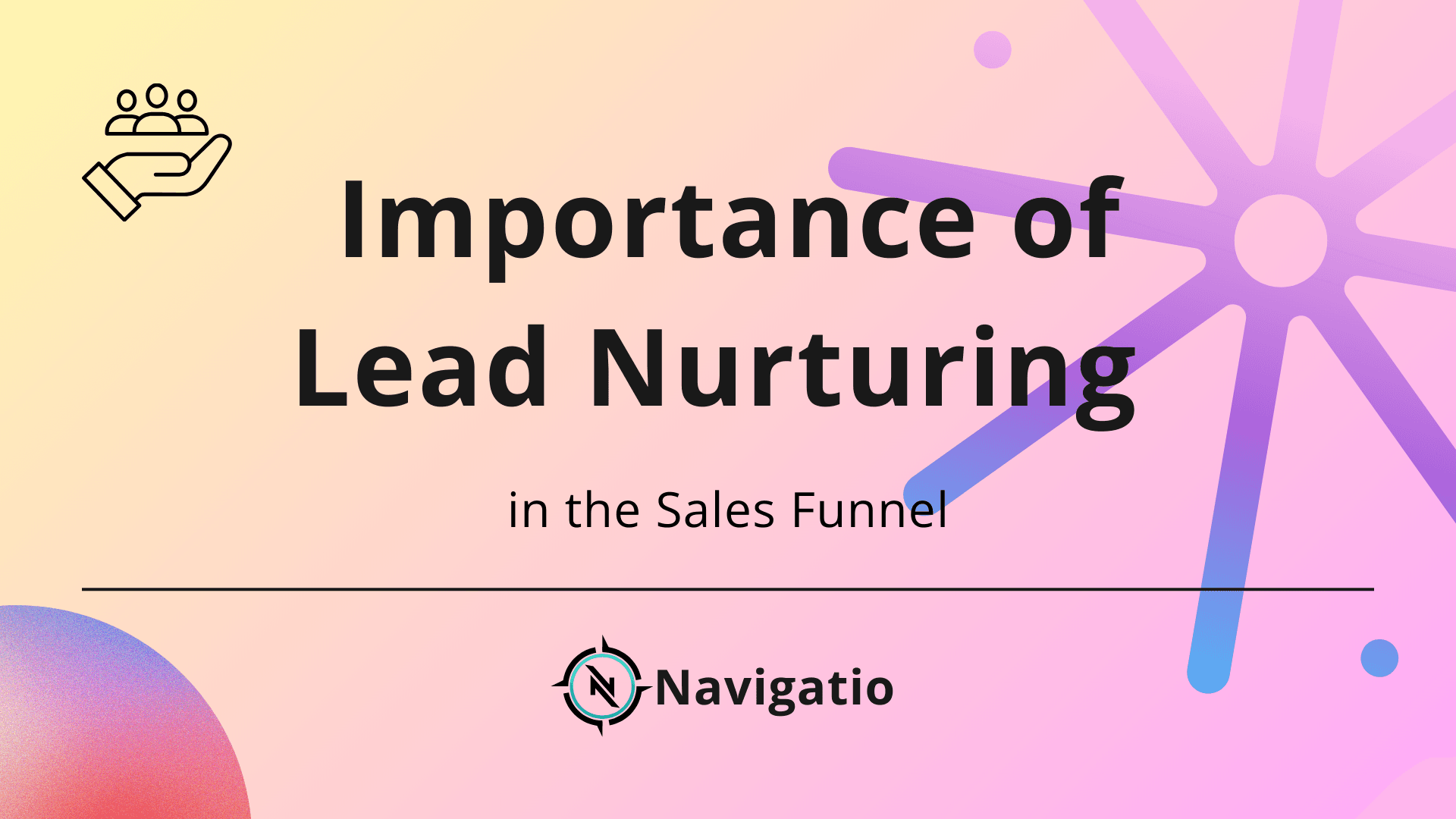We remember the days when lead nurturing didn’t exist: you enter a store to look at some clothes or homewares, minding your own business. Then all of a sudden a salesperson starts pitching their products immediately, oblivious to whether you need them or not. It feels rushed, impersonal, and, frankly, off-putting. Now compare that to the experience you can get more and more commonly nowadays – when a brand you’ve been interacting with for weeks reaches out to you, how do they do it? They start up front: sharing insightful tips with you, answering your questions, and genuinely adding value to your life. And when they finally suggest a product or service, you’re much more inclined to listen – because you trust them.
This is the difference that lead nurturing makes. It’s not about bombarding potential customers with offers. It’s about guiding them, step by step, through a journey that feels personal and genuine. In today’s fast-paced, choice-overloaded world, people don’t buy just because you have a great product. They buy because they trust you, believe in your value, and see your brand as a partner in solving their problems.
What is Lead Nurturing
Lead nurturing involves engaging with prospects by delivering content and experiences that resonate with their specific stage in the sales funnel. This approach ensures that potential customers receive the right information at the right time, facilitating informed decision-making.
If we look at the relationship between a brand and a customer, it generally resembles a normal relationship between people: you hardly want to create a close connection with an annoying and self-serving person who gives you nothing and instead wants to get a valuable resource from you: your time/money/attention.
So, if your goal is to keep your customers choosing your product or service, think about building a friendly relationship with them.
Importance of Lead Nurturing in the Sales Funnel
- Building Trust: consistent and relevant communication helps establish relationships between customer and your brand. By answering questions, addressing concerns, and providing value, you can set up trust and build relationships that last beyond a single transaction.
- More Sales Opportunities: when you consistently nurture your leads, you position yourself as an expert in your field. This makes prospects more likely to choose your solution when they’re ready to buy, leading to increased sales and revenue.
- Enhanced Brand Credibility: by sharing valuable insights and consistently engaging with your audience, you position your brand as a trusted authority in your industry. This not only helps with lead conversion but also strengthens your reputation in the market.
- Better-Qualified Leads: when you nurture leads, you engage with prospects who are genuinely interested in your product or service. This targeted approach means you’re focusing on high-quality leads that are more likely to convert.
- Enhancing Customer Relationships: nurturing doesn’t stop at conversion. Maintaining communication post-purchase fosters loyalty and encourages repeat business, transforming customers into advocates for your brand.
Effective Lead Nurturing Strategies
- Personalized Email Campaigns: one of the most effective tools for lead nurturing. By sending targeted content, product updates, or exclusive offers tailored to your audience, you can keep your leads engaged and informed.
- Educational Content: blogs, how-to guides, etc, that address your audience’s challenges can establish your business as a helpful resource. The more value you provide – more likely leads are to see you as a trusted partner.
- Webinars or Live Events: hosting webinars or virtual events on topics your audience cares about can build your credibility and give leads the chance to interact with your brand directly.
- Retargeting Ads: don’t let your leads forget about you! Retargeting ads help remind those who’ve interacted with your business why your solution is the one they need
- Personalization: small touches are power: addressing a prospect by name or sending recommendations based on their behavior will make your outreach feel authentic.
- Active Social Media Engagement: stay visible where your audience spends their time. Post helpful tips, answer questions, and join conversations to build connections and establish trust.
- CRM Automation: CRM system is a must for tracking interactions, automating follow-ups, and ensuring no lead falls through the cracks. This helps you stay organized and provide timely, relevant communication.
To sum up
Lead nurturing is a game-changer for any sales process. By focusing on building genuine relationships with your leads and providing them with the information and value they need at the right time, you will create real trust and credibility that sets you apart from the competition. It’s not about selling – it’s about helping your potential customers see the value your business brings and guiding them through their decision-making process.
When done well, lead nurturing can make your sales process more efficient, enhance the overall customer experience, and help you close more deals. Whether you’re a small business or a large company, taking the time to implement a thoughtful, personalized lead nurturing strategy is key to driving long-term revenue growth.
